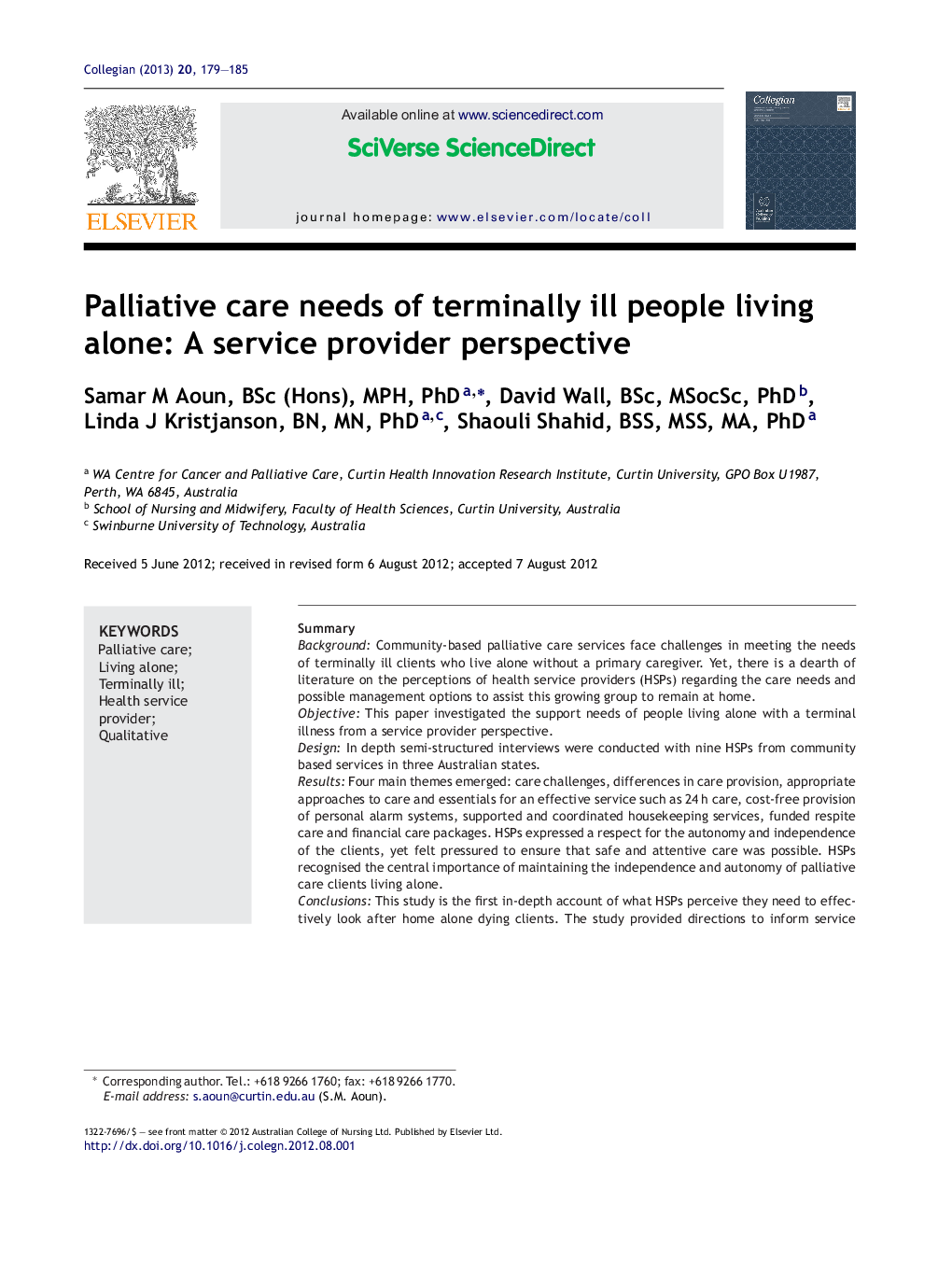| Article ID | Journal | Published Year | Pages | File Type |
|---|---|---|---|---|
| 2647399 | Collegian | 2013 | 7 Pages |
SummaryBackgroundCommunity-based palliative care services face challenges in meeting the needs of terminally ill clients who live alone without a primary caregiver. Yet, there is a dearth of literature on the perceptions of health service providers (HSPs) regarding the care needs and possible management options to assist this growing group to remain at home.ObjectiveThis paper investigated the support needs of people living alone with a terminal illness from a service provider perspective.DesignIn depth semi-structured interviews were conducted with nine HSPs from community based services in three Australian states.ResultsFour main themes emerged: care challenges, differences in care provision, appropriate approaches to care and essentials for an effective service such as 24 h care, cost-free provision of personal alarm systems, supported and coordinated housekeeping services, funded respite care and financial care packages. HSPs expressed a respect for the autonomy and independence of the clients, yet felt pressured to ensure that safe and attentive care was possible. HSPs recognised the central importance of maintaining the independence and autonomy of palliative care clients living alone.ConclusionsThis study is the first in-depth account of what HSPs perceive they need to effectively look after home alone dying clients. The study provided directions to inform service planning for this growing and challenging population group regarding adequate and timely services that will lead to more complying with the clients’ wishes, more care being delivered at home, a reduction in hospitalisations, a better quality of life and a capacity to die at home.
